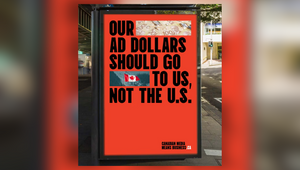
Ad Net Zero Global Summit 2022: Best of Day Two

Day two of the Ad Net Zero global summit followed this year’s theme of ‘action over promises’, and continued to - through the utilisation of data and technology - convince businesses and companies that this is the deciding decade for the industry to do its bit in saving our planet.
Sarah King, senior partner sustainable transformation practice at Kantar, opened the floor in the afternoon, giving some concrete answers to the question of ‘Why Sustainability is Central to Brand Success’.
Speaking on numerous research projects conducted by Kantar on the topic, Sarah pleaded to brands watching to take a good look at their sustainability practices today. She explained that pressures are not one sided for brands to turn a page - they are coming from consumers, employees, stakeholders, and governments. “Consumers are now taking control of the marketplace and looking for brands that embrace a new mindset and sensibility,” she said. Kantar’s research showed that younger cohorts have more to lose when it comes to the planet’s wellbeing, as they now have been left to deal with what “older cohorts have left behind”. That showed in the numbers too - 75% of millennials told Kantar that their employer’s brand sustainability is very important to them, and gen z didn’t fall behind that either.
Continuing, she added that Kantar's research shows that “More than 70% of the global economy is committed to carbon neutrality by 2050,” continued Sarah. This means that the ability to attract money, talent, partners, will be dependent on sustainability practices and the following through with them. “Going forward, sustainability will clearly be a huge part of that - it is critical to brands’ futures.”
Another survey by Kantar looked at brands that are largely ‘perceived’ as sustainable, and those that actually have working sustainability practices in place that are communicated to people. What they found was that the overlap between the two saw major growth in the past years - further evidence that consumers are actively engaged with the subject. “54% say they pay a lot of attention to environmental and climate change news,” said Sarah. “47% invest time and money in companies that try to do good, including actively choosing their products over their counterparts. 51% believe that buying sustainable products is demonstrable to who they are as a person. People are engaged in this, and there is a very clear demand between them to act on climate issues!”
On another hot subject - the cost of living crisis - Kantar had done a ‘from the floor’ survey, asking participants what is actually on their minds, what are their biggest concerns that need immediate solutions, and equally, who is responsible for providing those solutions. The three main concerns of the public came to be ‘the economy’, ‘inflation (as a subset of economy)’, ‘climate change’ and finally ‘social problems’, with the actors responsible for the solutions of which were ‘the government’ on first place, followed by ‘companies and businesses’ and ‘the general public’. “People do not try to shake off responsibility, but they need some help. Everybody has to pull their weight,” Sarah said.
She finished with a punching conclusion: “Since 2008, a year of disruption, issues around the world continue. Unaddressed, these issues are a threat. Addressed, they are an opportunity. Consumer opinion is clear - they are very worried and know they have a role in this, but they need businesses and companies to help them change sustainability from an aspirational niche into a global activation. This enables you as a brand owner to do something appropriate and then place that into your differentiation brand strategy. People’s values are in favour of all of this. When you get this right, you will avoid reputational risk, and will be able to help your consumers scale their own impact and follow through with their personal aspirations.”
Following this was a conversation between Stephan Loerke, CEO of the World Federation of Advertisers and Fabrice Beaulieu, chief marketing sustainability and corporate affairs officer at Reckitt, on why advertisers ‘must care’ about COP27.
Coming with some insights from COP26 in Glasgow, Stephan reflected that the plan is for the planet to reach its carbon reduction objectives as soon as possible, and that “more than half of these reductions will come from consumer behaviour change, which is where brands come in and are very important.” To this, Fabrice added that brands can tangibly contribute to the COP agenda when recognising that there is a demand for brands to become more sustainable - something which is clearly true across generations and geographies.
“What people expect is a few things: greener chemistry (no plastics and other toxic materials), lower carbon emissions, and more positive contribution. That is likely to be a great challenge for those that have not yet started their sustainability journey, but an opportunity for those that will embrace these growing expectations. Brands are genuinely expected to create positive programs. What is happening is that sustainability is coming into the heart of the brand playbook and is now absolutely essential to growth.”
To Fabrice, this is a journey many actors have likely ‘not yet figured out’, but one to which most people in the industry want to contribute, regardless of where their start is. “This is why the COP agenda and conversations like Ad Net Zero are so useful - they give you an action plan that helps rally your teams and galvanise your entire organisation,” he said. “Clear frameworks help progress. This entire agenda is about progress over perfection. We just need to encourage it to come faster.”
Later in the day, Nadia Tuma-Weldon, EVP global director of thought leadership and Jess Francis, senior strategist at McCann Truth Central discussed how their research has changed and delivered throughout the past year. The findings of their global study on sustainability named ‘The Truth about Sustainability’ looked at the events during 2021, and gave brands durable evidence on why sustainability should be on top of their agenda, which now, a year later, is more relevant than ever.
“We don’t need to tell you that the past year has seen even more crises than the year before it. World events cause more stress around the globe and within our research, 80% of people say that the world is reaching some kind of tipping point,” said Nadia. “Crucially, despite all the talk, we see a rise in emissions year on year. We see this increased concern reflected in our data. People that stated they are ‘constantly worried about climate change’ rose from 31% in 2021 to 38% in 2022.”.
Addressing what Sarah had said earlier, Nadia added that McCann’s research also found that responsibility to fix these worries surrounding climate is a three-legged stool - split between governments, companies and businesses, and the general public. “This is the time to invite and welcome opportunities that will lead to new areas of growth,” she reflected.
Jess explained that change crucially depends on local cultures, and although younger generations all over the world are engaged in climate change talks at different levels, approaches need to vary. “Tailoring sustainability practices to cultures over trying to force a one size fits all way is preferable. For example, in Germany, customers are more likely to respond to buying durable products over fast fashion. In India, they will respond better to vegan and vegetarian food over other countries. We need to meet people where they are and start with the low hanging fruit in their respective cultures - that will then snowball into larger change.”
Nadia added that sustainability seems to have a major communication issue, which is where advertising has a huge role. “The communication needs to be less about deprivation and what sustainable living takes away from your normal habits, but more about the goods it can give you. Brands need to learn to communicate to customers that they will gain rather than lose things they love and enjoy, if they engage in ways of living that are better for the planet.”















